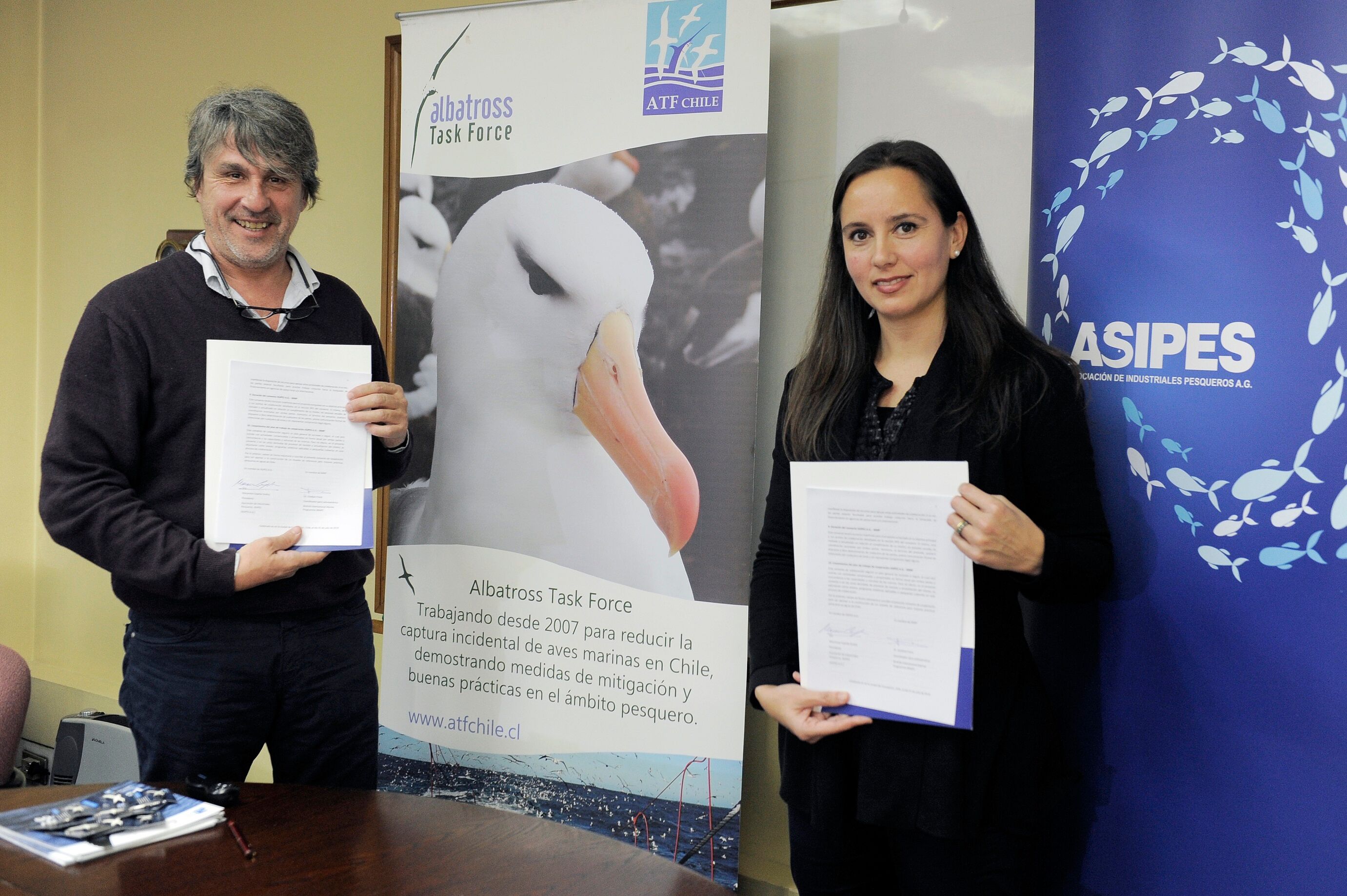Chile is a key country for seabird conservation globally. Its nutrient-rich waters are home to important albatross, petrel and shearwater breeding colonies, as well as foraging areas for seabirds of conservation concern from other parts of the Pacific Ocean. The Humboldt Current System off the coast of Chile is also host to important artisanal and industrial fisheries, including purse-seine fleets targeting forage fish and trawl fleets targeting Chilean Hake Merluccius gayi and Hoki Macruronus magellanicus.
Since the inception of the Albatross Task Force in Chile in 2007, BirdLife International’s Marine Programme (BIMP) and CODEFF – Chile (Comité Pro-Defensa de la Flora Y Fauna) have supported a dedicated team of bycatch mitigation experts with the aim of demonstrating how to reduce seabird bycatch on board fishing vessels.
Among the most bycaught seabirds in Chile are ACAP-listed species such as the Black-browed Thalassarche melanophris and Vulnerable Salvin’s T. salvini Albatrosses (in trawl fleets) and the Vulnerable Pink-footed Shearwater Ardenna creatopus, a Chilean breeding endemic, in purse-seine fisheries. The list also includes other species with decreasing populations, such as the Near Threatened Sooty Shearwater A. grisea (click here).
Over the years, new bridges have been built between the Albatross Task Force in Chile and the fishing industry. This has been made possible thanks to the collaboration of the Association of Industrial Fisheries of Chile (La Asociación de Industriales Pesqueros, ASIPES), made up of six purse-seine and trawl companies with c. 6500 employees in one of the largest fishing regions in south-central Chile.
This ongoing collaboration has culminated in BIMP and ASIPES signing a cooperation agreement this month, aimed at promoting and implementing the use of seabird bycatch mitigation measures in the fleets that fall under ASIPES, as well as training fishing crews in best practices on land and at sea, including waste management, safely handling and rescuing seabirds, and avoiding fishing gear discards, amongst others.


Esteban Frere (BirdLife International Marine Programme) and Macarena Cepeda, President, ASIPES sign the agreement, photographs by Jose Luis Saavreda
"...This is the first agreement of its kind between a productive fishing association and this type of organization to encourage the implementation of best practices on board..." (Macarena Cepeda, President, ASIPES)
"...This agreement is very important, as it seeks [to expand] the joint work between an NGO and the fishing industry towards finding best practices..." (Esteban Frere, BirdLife International Marine Programme).
“…It is an important advance, since this collaboration is aligned with the requirements of SERNAPESCA [Servicio Nacional de Pesca y Acuicultura, Chile] to reduce discards and bycatch. This allows us to have more environmentally-friendly fisheries...” (Claudio Báez, Director, National Fisheries and Aquaculture Service, SERNAPESCA-Biobío).
The commitments outlined in the cooperation agreement encompass a wide range of ideas and activities to support the use of best practices in these fisheries in the long-term. The first step was the recognition of the seabird bycatch problem in fisheries. Moving forward, there is now an opportunity to identify alternatives and reduce our impacts on seabird populations through this inclusive and collaborative initiative.
Read an account of the signing of the cooperation agreement in Spanish here.
Cristián G. Suazo, Albatross Task Force – Chile, BirdLife International, 30 August 2019

 English
English  Français
Français  Español
Español